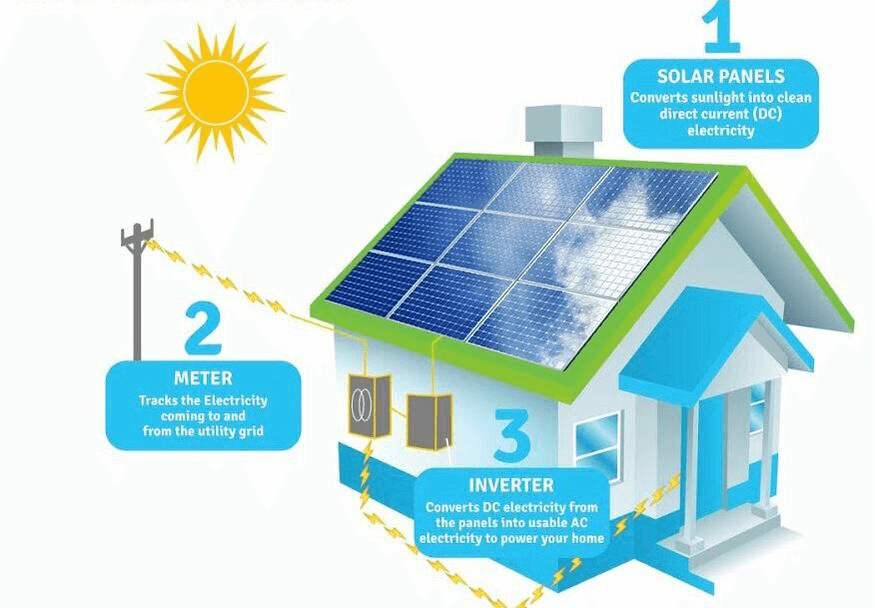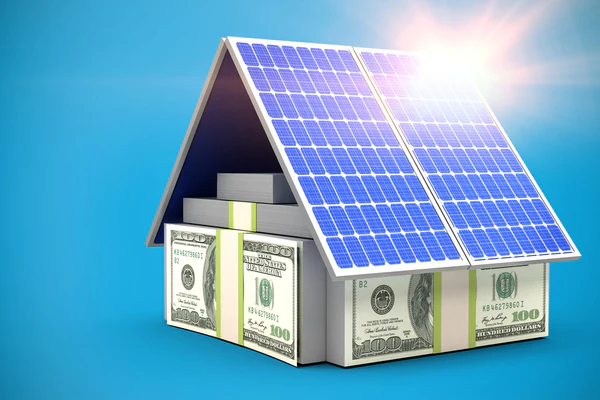Just How Solar Power Can Assist You Conserve Cash and Lower Your Carbon Impact
The assimilation of solar energy right into your power profile offers an engaging chance for both economic cost savings and ecological stewardship. By using the sunlight's power, home owners can considerably decrease their regular monthly utility costs while likewise protecting against the unpredictability of future energy expenses. The shift to solar adds to a marked reduction in carbon discharges, aligning individual finance with more comprehensive eco-friendly goals. As various federal government incentives appear, the concern arises: just how can one successfully navigate the first investments and recurring benefits of solar technology to make best use of both economic and ecological gains?
Understanding Solar Power Cost Savings
While the change to solar power commonly involves an initial financial investment, recognizing solar power cost savings is vital for homeowners and services alike. Solar power systems can significantly minimize power bills by taking advantage of the sunlight's power, translating into significant lasting monetary advantages. By creating their own electrical energy, customers minimize reliance on grid power, which undergoes varying rates. These savings can accumulate in time, usually resulting in a rapid roi.
Furthermore, solar power systems might receive different monetary incentives, including tax obligation credit reports and refunds, further boosting their cost-effectiveness. The accessibility of net metering allows customers to offer excess energy back to the grid, developing an added income stream. These factors add to the general savings related to solar power.

Along with guide financial cost savings, solar power supplies the included advantage of raising residential or commercial property value. Homes equipped with solar panels are frequently much more attractive to purchasers, as they guarantee lower energy expenses - Simply Solar Illinois. Comprehending these aspects is important for anyone thinking about solar power, as it highlights not simply the possible economic gains, yet additionally the broader environmental and economic benefits of taking on renewable energy options
Preliminary Costs vs. Long-Term Conveniences
When reviewing solar energy, it is important to consider the preliminary expenses against the long-lasting advantages. The upfront investment for solar panels, installation, and related tools can be considerable, typically ranging from $15,000 to $30,000, relying on the system size and home power requirements. This initial expense may hinder some house owners; however, it is crucial to think about the potential financial savings in time.
As soon as set up, solar energy systems can substantially decrease and even remove regular monthly electrical energy expenses, leading to significant long-lasting financial advantages. Researches suggest that homeowners can conserve anywhere from $10,000 to $30,000 over the life-span of their solar system, commonly 25 years. Furthermore, several states offer rewards, tax obligation credit scores, and discounts that can offset preliminary expenses, making solar more available.

Minimizing Your Carbon Footprint
Minimizing your carbon footprint is a critical consideration in today's eco mindful society, and embracing solar power is just one of the most effective methods to achieve this objective. Solar power is a tidy, eco-friendly resource that considerably lessens dependence on nonrenewable fuel sources, which are significant factors to greenhouse gas emissions.

Moreover, the widespread fostering of solar technology urges the development of environment-friendly tasks and sustains developments in power storage and performance. The more people and organizations purchase solar energy, the greater the cumulative reduction in carbon exhausts, fostering a cleaner ambience for future generations.
Federal Government Motivations and Refunds
Taking on solar power not just benefits the setting however can additionally cause considerable financial cost savings, especially with the accessibility of federal government incentives and discounts. Various federal, state, and local programs are created to urge house owners and companies to buy solar energy systems, making the shift extra economical.
Among one of the most popular motivations is the Federal Financial Investment Tax Credit Scores (ITC), which enables planetary system proprietors to deduct a considerable percent of the installation costs from their government taxes. This incentive has been crucial in minimizing the upfront costs connected with solar power systems. In addition, several states provide their very own tax credit scores, grants, and refunds that can additionally improve cost savings.
Moreover, some city governments offer real estate tax exemptions for solar setups, guaranteeing that property owners do not face increased real estate tax as an outcome imp source of their sustainable energy investments. Energy business may also supply motivations, consisting of internet metering and feed-in tariffs, which permit solar power individuals to sell excess power back to the grid.
Picking the Right Planetary System
Selecting the appropriate planetary system is vital for making best use of power efficiency and economic advantages. The decision pivots on a number of factors, consisting of energy demands, budget plan, and available room. Property owners should start by examining their electrical power look at here now intake to establish the system size needed for ideal efficiency.
Next, consider the various kinds of solar technologies readily available. Simply Solar Illinois. Photovoltaic (PV) panels are one of the most common, transforming sunlight straight into power, while solar thermal systems concentrate on heating water. Each type has distinct advantages depending upon individual demands
Budget factors to consider are also paramount. First setup prices can differ substantially, so it is necessary to contrast quotes from multiple carriers and check out funding options. Federal government incentives and discounts can additionally minimize the monetary concern, making planetary systems extra easily accessible.
Verdict
In recap, solar energy presents a practical option for attaining substantial cost savings while concurrently decreasing carbon exhausts. The initial investment, though substantial, yields considerable long-lasting monetary benefits, with prospective cost savings varying from $10,000 to $30,000 over 25 years. Moreover, the ecological benefits of solar power add to lasting methods crucial for combating climate change. Government incentives boost the usefulness of solar modern technology fostering, motivating a shift towards a cleaner, more economically reliable power source.